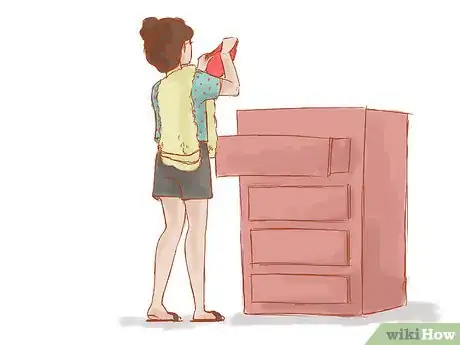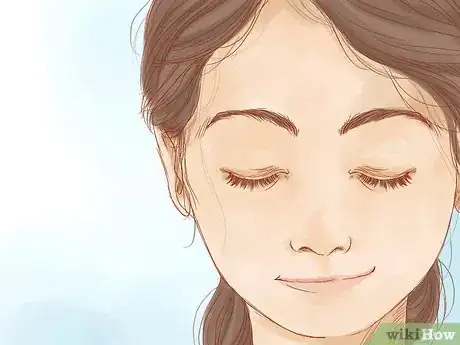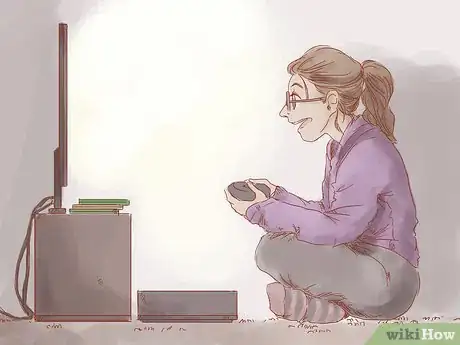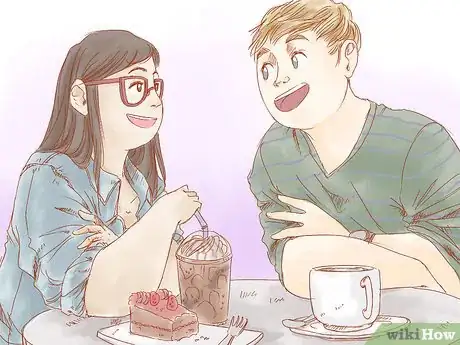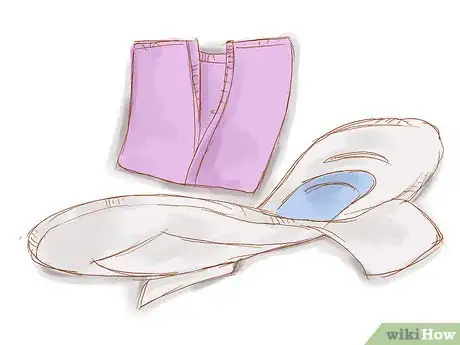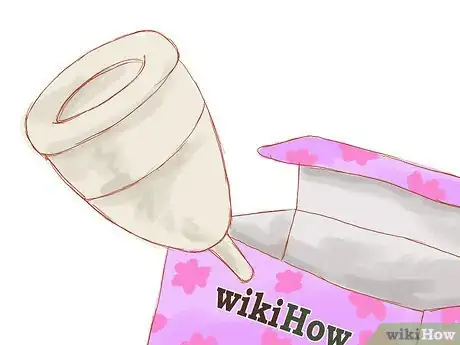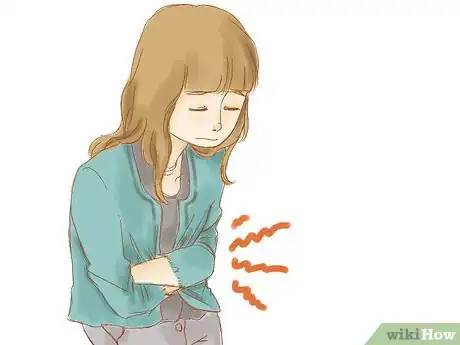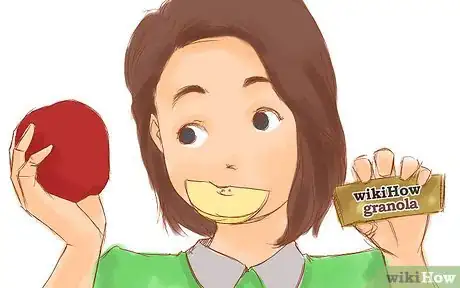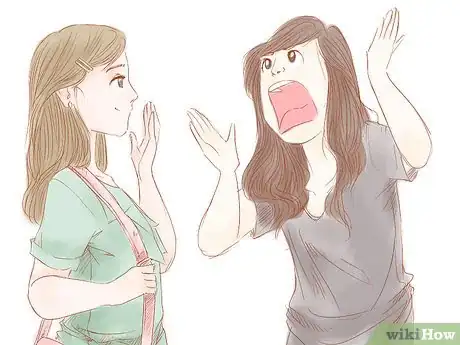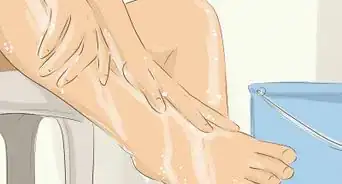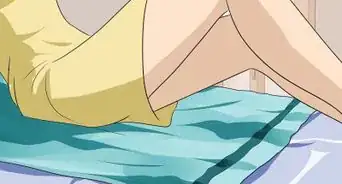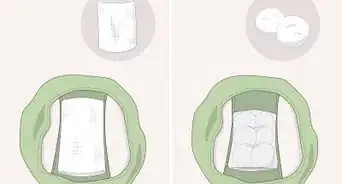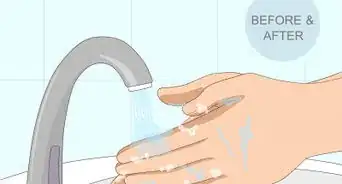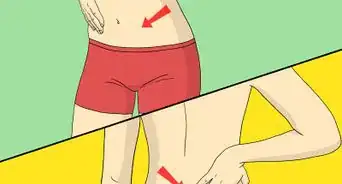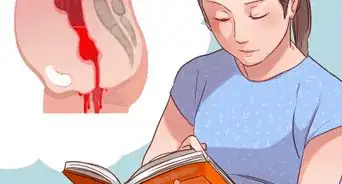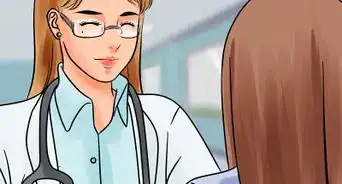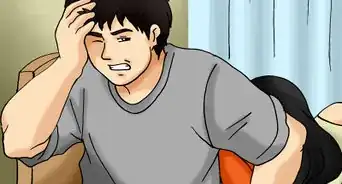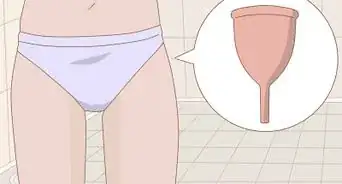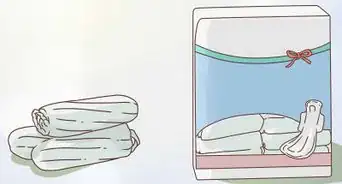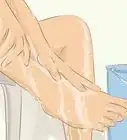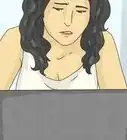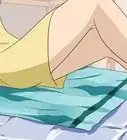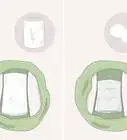wikiHow is a “wiki,” similar to Wikipedia, which means that many of our articles are co-written by multiple authors. To create this article, 30 people, some anonymous, worked to edit and improve it over time.
There are 11 references cited in this article, which can be found at the bottom of the page.
wikiHow marks an article as reader-approved once it receives enough positive feedback. In this case, 93% of readers who voted found the article helpful, earning it our reader-approved status.
This article has been viewed 66,254 times.
Learn more...
Having a period is a part of growing up. There is nothing to be embarrassed about. Are you having a bad day on your period? Finding ways to be comfortable, while staying healthy, is the key to dealing with a monthly part of mother nature that will be with you for a number of years of your life.
Steps
Warnings
- You cannot stop your period. It is part of becoming a woman.⧼thumbs_response⧽
- If you are having really bad cramps, consult your doctor.⧼thumbs_response⧽
- Avoid stressful situations as much as possible, as these situations could worsen cramps and cause you to feel more fragile.⧼thumbs_response⧽
- Change often enough to stay free of bacterial growth and odors:
- Pads - change it after 3-4 hours;
- Cups - change it after 12 hours;
- Tampons - for no longer than 8 hours. Leaving a tampon inserted in excess of eight hours can lead to an infection and irritation. It can also cause a serious condition known as Toxic Shock Syndrome.[11]
⧼thumbs_response⧽
Things You'll Need
- Tampons
- Pads
- Menstrual cups (optional)
- Period kit
- Dark Clothes (optional)
References
- ↑ https://kidshealth.org/en/teens/period-blues.html
- ↑ https://kidshealth.org/en/teens/supplies.html
- ↑ https://kidshealth.org/en/teens/changing-pads.html
- ↑ https://www.webmd.com/women/guide/menstrual-cup#1
- ↑ https://kidshealth.org/en/teens/menstrual-problems.html
- ↑ https://www.webmd.com/women/pms/does-exercise-help-pms
- ↑ https://www.womenshealthmag.com/health/heavy-period-iron-supplement
- ↑ https://www.webmd.com/diet/features/is-pms-sabotaging-your-diet#2
- ↑ https://www.plannedparenthood.org/learn/teens/ask-experts/why-are-girls-so-moody-during-there-period
About This Article
Sometimes it can be hard to get comfortable on your period, but there are a few ways you can reduce your symptoms and relax. If your cramps are bothering you, try applying a heating pad to your abdomen for 15-20 minutes at a time. Although you might not feel like getting physical, some light exercise, like stretching, or going for a walk, can also help to ease your cramps. Change your sanitary product often to make yourself more comfortable. If you don't like tampons, try pantyliners or a menstrual cup. It’s important to eat healthy while on your period. It might be tempting to reach for comfort food, but too much unhealthy food can actually make you feel worse. Try to stay busy doing the things you enjoy to distract you from your period pains. For more advice, including how to prevent leakage on your period, read on.
